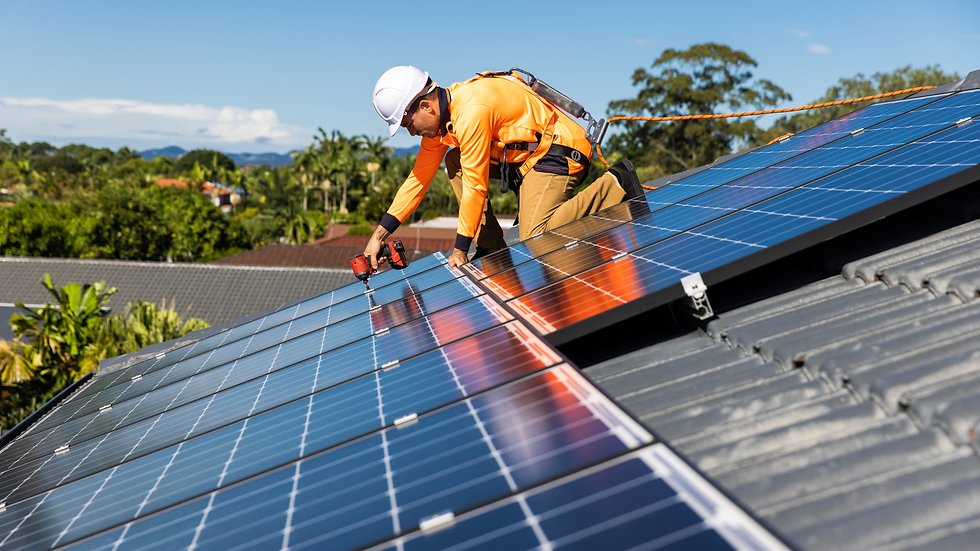Beat the Latest Electricity Price Hikes: Why Backup Units and Solar Power Are the Smarter Long-Term Investment
- Danike Bouwer

- Oct 2
- 2 min read

South African households are once again dealing with steep electricity price hikes. According to MyBroadband, residents across major metros can now expect to pay an extra R245 to R333 per month on electricity, depending on where they live.
For example:
Cape Town residents will pay around R334 more per month.
Johannesburg households will see bills rise by roughly R273 monthly.
Ekurhuleni residents will be hit hardest, facing increases of about R330 monthly.
While these increases may feel small in isolation, they add up quickly—translating to R3,000–R4,000 extra per year. With no guarantee of price stability, many South Africans are asking: Is there a smarter way forward?
The answer: investing in backup units and solar power.
The Cost-Benefit Factor of Going Solar
Monthly Savings Over TimeInstalling solar panels and a backup system (like batteries or inverters) comes with upfront costs, but the monthly savings compound significantly. A modest solar setup can reduce grid reliance by 30–50%, cutting the sting of annual tariff hikes.Over 5 years, that could mean tens of thousands of rands saved—far outweighing the initial investment.
Energy Security During Load SheddingIt’s not just about saving money. With backup units, households avoid the costs of downtime—like spoiled food, lost productivity, or damage to sensitive electronics.
Property Value GrowthHomes equipped with solar and backup power are increasingly attractive to buyers, meaning homeowners recoup more of their investment if they sell.
Example: Cape Town Resident vs. Solar Investor
Without solar: A Cape Town household pays R334 more per month under the new tariffs, totaling over R4,000 extra annually. If hikes continue at similar rates, that cost could double in just a few years.
With solar + backup: The same household offsets a large chunk of grid use, effectively neutralizing the hikes and saving thousands over time.
Why Now Is the Best Time
The latest hikes highlight a recurring pattern—electricity costs aren’t going down. As MyBroadband reports, municipalities are approving double-digit increases year after year, leaving consumers with little control.
By switching to solar and investing in backup solutions, you take that control back—protecting your household from rising costs, while ensuring energy stability.
✅ UtilityPal Tip: We help you compare the best energy and backup options tailored to your home’s needs, so you can start saving immediately and avoid being trapped by escalating tariffs.




Comments